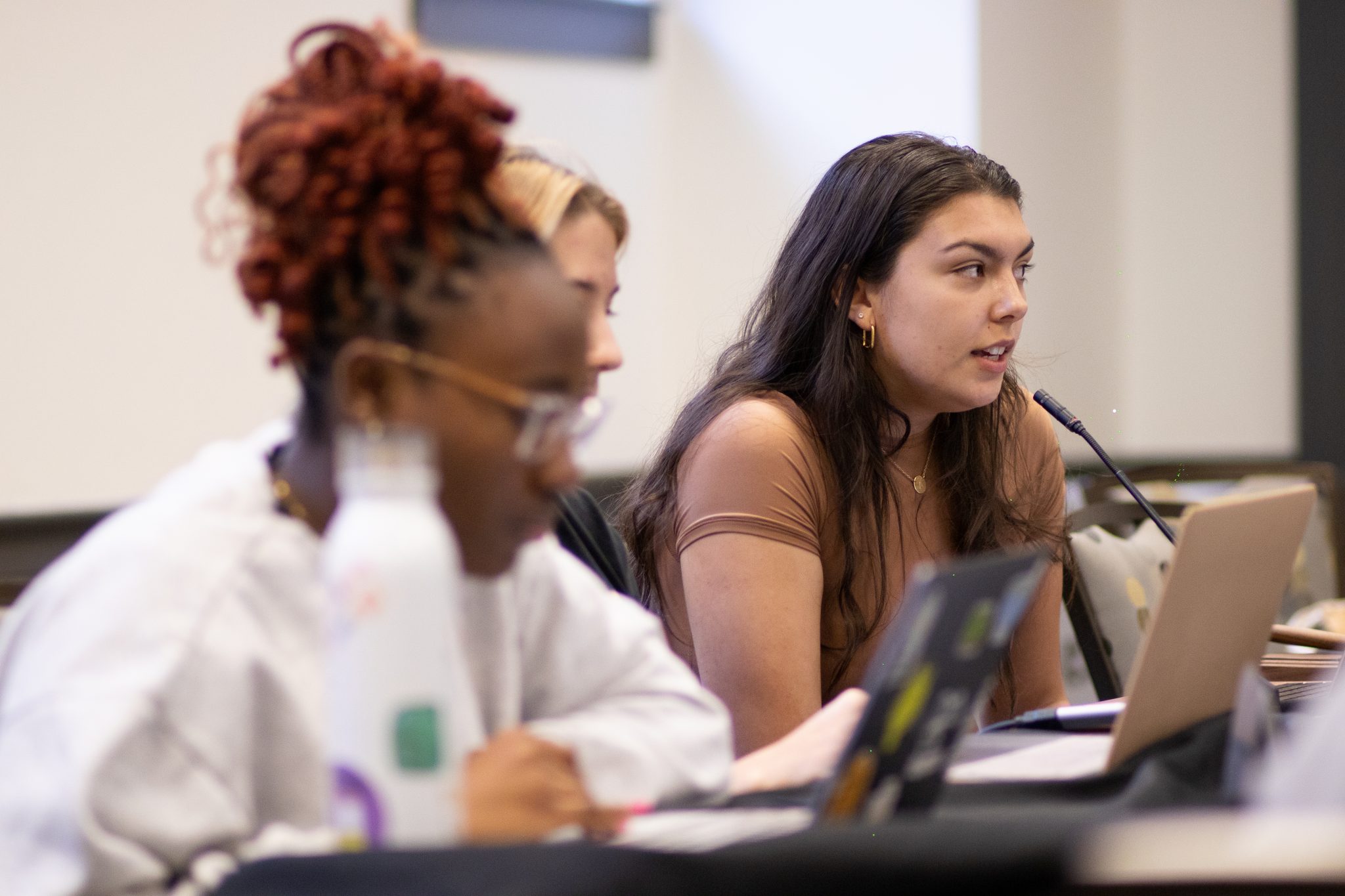The University of Maryland SGA amended several bylaws and committee procedures Sunday after more than 10 hours of debate last week.
The amendments include changes to the Student Government Association’s committee voting requirements and new technology and research initiatives. During the discussion, which lasted three meetings, SGA also added a new representative position and modified responsibilities for legislators.
Under the amended bylaws, students can vote in an open committee meeting if they have attended at least one meeting from that committee.
Previously, this threshold was left to each committee director’s discretion. Most open committees required 50 percent committee attendance from the first day of attendance in order to vote, according to SGA president Alexandra DeBus.
This issue was highly debated during the hourslong discussion as members disagreed over whether a voting threshold should exist and how high it should be.
[More than 70% of electable SGA legislative positions are filled by appointment]
Some students support voting thresholds to prevent single-issue voting, DeBus, a senior biochemistry major, said. The thresholds are meant to encourage “long-standing engagement with the committee and student advocacy,” she added.
Abel Amene, a senior economics and physics major, said during a Thursday SGA meeting that a one-meeting threshold should be sufficient to ensure voting rights.
“Any higher than that, you’re just making it too restrictive,” Amene, an off-campus outlying representative, said.
Omar Escudero, an off-campus outlying representative, said there should not be a large threshold for people who want to vote in committees.
“It’s frankly ridiculous that we are continuing to insist that we have these requirements at all because we have been getting so much backlash,” the junior government and politics major said. “I feel as though it is unnecessary and undemocratic.”
This amendment comes after several students previously expressed frustration over a former SGA divestment resolution that was placed in the student affairs committee, which required 50 percent committee attendance to vote. The bill called on the university to divest from “companies engaged in human rights violations.”
More than 100 students attended SGA committee meetings last month in hopes of becoming eligible to vote on the resolution in committee, The Diamondback previously reported.
The bill ultimately failed to advance in the body after an unfavorable committee report by the student affairs committee, The Diamondback previously reported.
[UMD SGA fails to advance divestment resolution]
The amendment creates more flexible voting requirements for students to vote on bills in open committees in the next academic year, according to the new bylaws.
The SGA also announced a new research and technology committee, which will be implemented this fall.
The committee would perform research and collect data on SGA initiatives, along with pursuing its own research and technology-based goals, according to DeBus.
“It is fabulous that we want to incorporate facets of technology into SGA because I think that’s an area in which we can improve upon greatly,” DeBus said.
The SGA also added a residential position for the Oakland community.
The SGA’s Heritage representative previously represented the area. The change comes after a Resident Life policy created a distinct Oakland community, DeBus said.
Legislator office hours will be more flexible this upcoming school year, according to Eliav Hamburger, the SGA’s speaker of the legislature.
Now, legislators must hold one in-office office hour per week. They must also do student outreach once a month, Hamburger, a junior computer engineering major, said. Legislators were formerly required to hold office hours for two hours each week.
The changes will allow the SGA to expand student outreach and connection with student groups, he said.
The speaker of the legislature will also now receive honoraria equivalent to 50 percent of in-state tuition and mandatory fees, according to Hamburger.
Hamburger said the change likely won’t be implemented in the 2024-25 academic year due to budgeting procedures.



